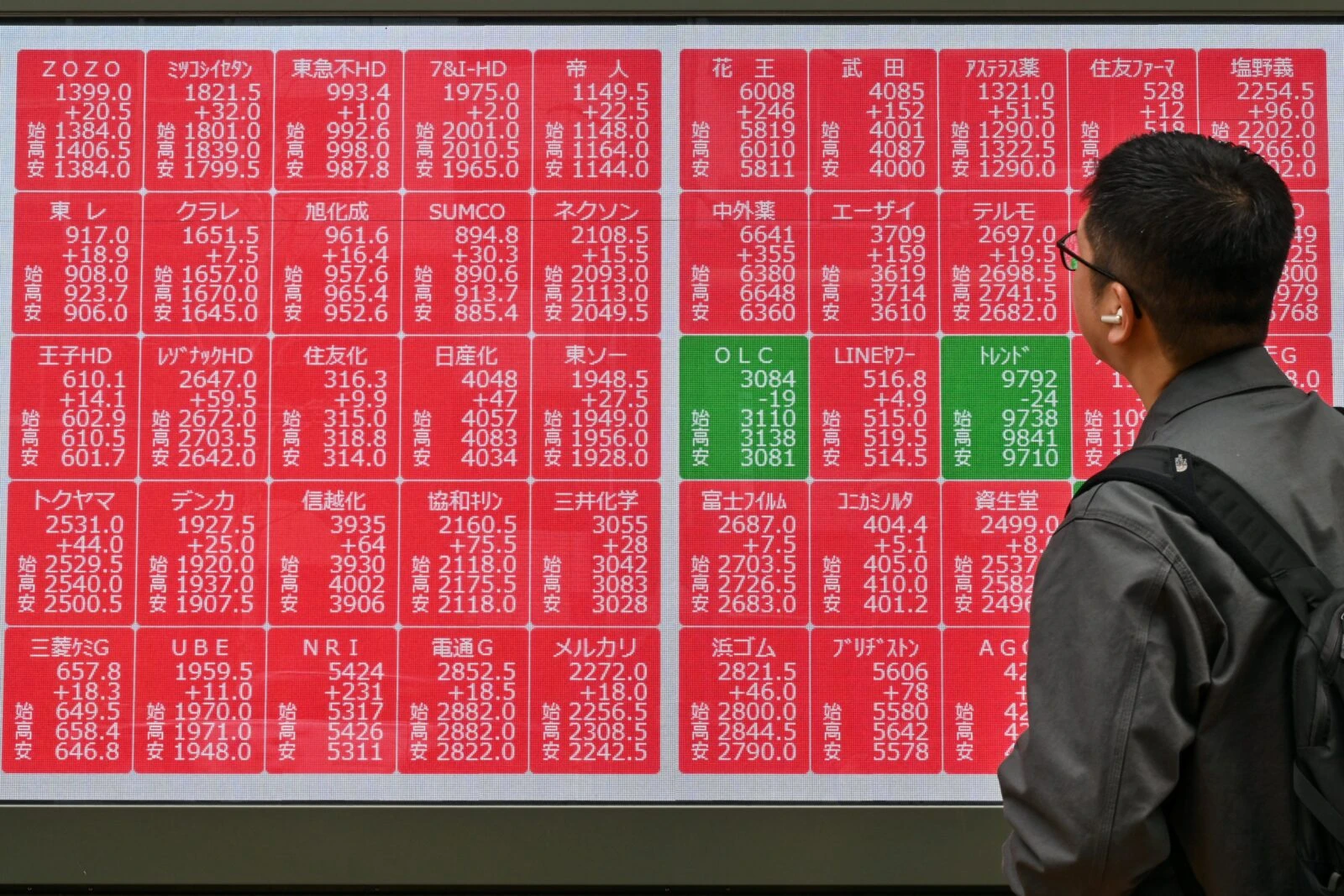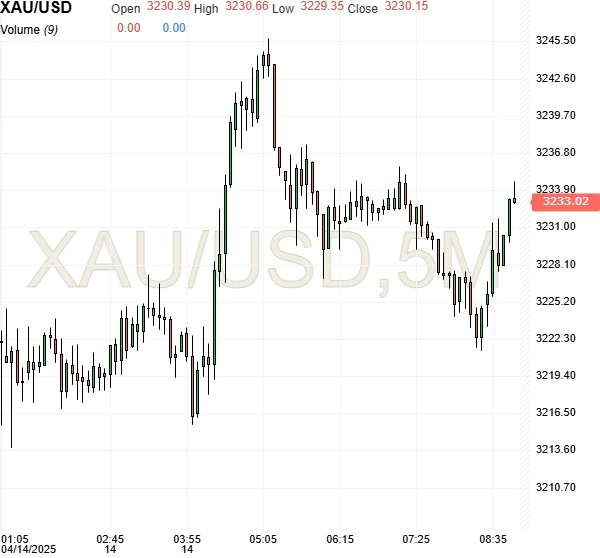Markets breathe easier on tech tariff relief as Trump warns: ‘No one’s off the hook’
 A man walks past an electronic board showing the Japanese yen/US dollar exchange rate (C) and the numbers of morning trading (R) on the Tokyo Stock Exchange along a street in Tokyo on April 14, 2025. (AFP Photo)
A man walks past an electronic board showing the Japanese yen/US dollar exchange rate (C) and the numbers of morning trading (R) on the Tokyo Stock Exchange along a street in Tokyo on April 14, 2025. (AFP Photo)
The White House’s tariff exemption of electronic products edged up markets, as Asian stocks rose Monday, temporarily easing the pressure on tech companies.
Hong Kong’s Hang Seng Index led the advance, climbing 2.4% to 21,416.93, while Tokyo’s Nikkei 225 rose 1.6% to 34,115.52. The Shanghai Composite Index gained 0.8% in mainland China, closing at 3,263.91. Other regional markets also ended higher, with Sydney, Seoul, Singapore, Wellington, Taipei, and Manila all up by around 1% on average, reflecting broad optimism across Asia.

Meanwhile, the U.S. dollar extended its losses against major peers on Monday, as uncertainty surrounding protectionist trade policy continued to weigh on confidence in the U.S. economic outlook.
The greenback weakened further against the yen, falling to 142.5 yen from 143.49 on Friday. The euro climbed to $1.1396, marking a fresh three-year high against the dollar, up from $1.1359. Sterling also strengthened, reaching $1.3118 from $1.3088, while the euro rose slightly against the pound to 86.88 pence from 86.8.
And gold, a go-to asset of safety in times of turmoil, hit a new peak of $3,245.75 Monday, helped by the weaker dollar.

In commodities, oil prices edged lower amid cautious trading. West Texas Intermediate (WTI) crude futures fell 0.3% to $61.34 per barrel, while Brent North Sea crude slipped by the same margin to $64.58 per barrel.
European stock markets also rose in early trading, with Germany’s DAX rising 2.3%, France’s CAC 40 up 2.2%, and the UK’s FTSE 100 advancing 1.9%.
‘Especially not China’
After last week’s turbulent trading, marked by dramatic market swings, global markets opened the new week on a more stable footing. The calm followed a Friday announcement from the White House, stating that smartphones, semiconductors, computers, and other electronic devices would be temporarily exempt from a new round of retaliatory tariffs. The move provided a much-needed boost to investor confidence, which had been shaken by President Donald Trump’s unpredictable tariff decisions and escalating tit-for-tat measures between the U.S. and China.
Wall Street responded positively, with all three major indexes ending Friday’s session solidly higher. Markets were further supported by remarks from a senior Federal Reserve official indicating that the central bank was prepared to act to stabilize financial markets if needed.
However, optimism was tempered over the weekend. On Sunday, President Trump posted on his Truth Social platform, clarifying that the exemptions were being “misconstrued” and insisting that “NOBODY is getting ‘off the hook’… especially not China which, by far, treats us the worst!” He added that new tariffs specifically targeting semiconductors would be announced “over the next week.”
U.S. Commerce Secretary Howard Lutnick echoed the president’s stance, explaining that electronics were not permanently exempt. Instead, they would soon fall under a new set of semiconductor-focused tariffs expected to be rolled out within the next one to two months. Lutnick described the measures as part of a broader strategy to realign trade policy with national security and industrial competitiveness goals.
In response, Chinese President Xi Jinping cautioned against protectionism in remarks delivered Monday, stating that “protectionism leads nowhere” and warning that “there are no winners in a trade war.” His comments came just days after China imposed tariffs of up to 125% on U.S. goods. Despite the escalation, Xi signaled a possible de-escalation path, suggesting that Beijing would avoid further retaliatory actions for the time being.
Meanwhile, the White House confirmed that Chinese goods would remain excluded from the 90-day tariff reprieve it announced on Wednesday, pushing the effective tariff rate on some Chinese imports as high as 145%.



